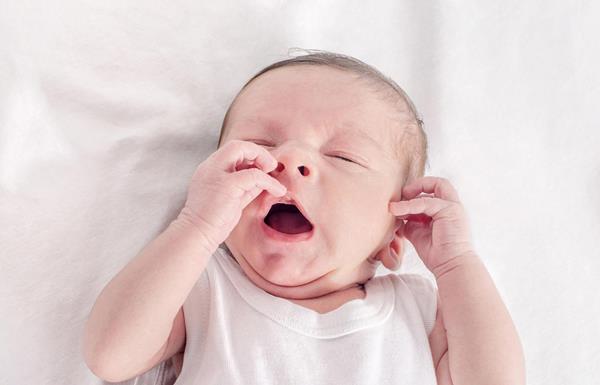To stay healthy, adults need about 8 hours of sleep a day. So what about babies? Do you ever wonder how many hours a day babies sleep? The answer lies right here, for reference!
content
How many hours a day do babies sleep?
Note for mom
For babies and young children, sleep is very important. Babies have good sleep and enough sleep to develop well. Insufficient sleep not only makes children tired, slow to grow, but in the long term also seriously affects the child's development. So, how many hours of sleep do babies sleep in a day to ensure their health?

Sleep is an important foundation for the physical and intellectual development of infants and young children
How many hours a day do babies sleep?
For adults, a standard sleep should last 8 hours per day. In contrast, with infants, whether the sleep is long or short depends on the body's needs. Children themselves cannot control their waking - sleeping on their own. Babies can sleep at any time of the day. However, babies 6 months and older, when something funny or stimulating can wake up on their own.
During the first 3 months of life, an average child will sleep 5 hours in the morning, and about 10 hours at night. Some babies can sleep all night, others have to wake up at least twice a night. This condition is quite common, occurring in about 95% of families with children under 12 months of age. Mom should also note that the total amount of sleep needed by a baby in a day depends quite a lot on the age.
1 / Infants 0 - 4 weeks old
At this age, children have not formed a certain sleep schedule. Your baby may fall asleep for a few minutes and will wake up often to ask for food. Your baby's average sleep can last from 10-18 hours / day.
2 / Newborn 1 month old
Your baby begins to have a day-night adaptation. Babies can spend the whole night sleeping and waking up more during the day. The total time needed for children's sleep during this period is about 18 and a half hours / day.
3 / Newborn 2 months old
At this point, the mother may notice that the baby is more alert, and able to communicate better with everyone while awake. However, babies still need 2-4 short daytime naps.

Take care of your baby's sleep: Have you made a mistake? Sleep plays a very important role for children, especially babies. Children getting enough sleep will develop both intellectually and mentally. But is the mother making some of the following mistakes when taking care of her baby's sleep?
4/3-month-old infant
From 3 months of age and older, children need to sleep from 10-16 and a half hours / day. Some babies can get 6-8 hours of full sleep at night, and need 2-3 daytime naps.
5 / Children from 6 months old
The older they get, the less time they need to sleep. Children aged 6 months need about 14-15 hours of sleep / day, including about 3 hours in the morning and 11 hours in the evening.
Sleep plays an important role for children. When the baby sleeps, the brain releases growth hormones that help in height development. Moreover, many studies also show that children who get enough sleep each day will develop better brain development than those who sleep a little, sleep not deeply or interrupted. So, instead of worrying about babies sleeping a lot, mothers should be careful if babies sleep a little, or don't want to go to bed before 10 p.m. Chances are your baby is having trouble sleeping.
Note for mom
If they are not sick and have been fully "recharged", babies are very likely to fall asleep. However, if the baby is constantly fussy, or sooths it all the time, mothers should note the following:
- Check your baby's diaper is wet: Wet diapers will make your baby feel uncomfortable.
Wrapping a towel around your body can help your baby sleep better. Because when wrapped in a towel will make the baby feel as safe as in the womb. However, mothers should also note that not all babies like the feeling of being forced.
- In order for the baby to sleep better, the mother can play a song with a gentle, soothing melody that makes the baby feel comfortable. In addition, mothers should also turn off the lights or let the night light darken to help the baby get used to the light in the bedroom, and also create a sleeping reflection when being put into a dark room.
- Practice the habit of sleeping at a fixed time, or maintain fixed activities before bedtime such as massage, bathing, lullaby ... Gradually, the baby will form a habit and recognize when the activities are This happened that it was time to sleep.













